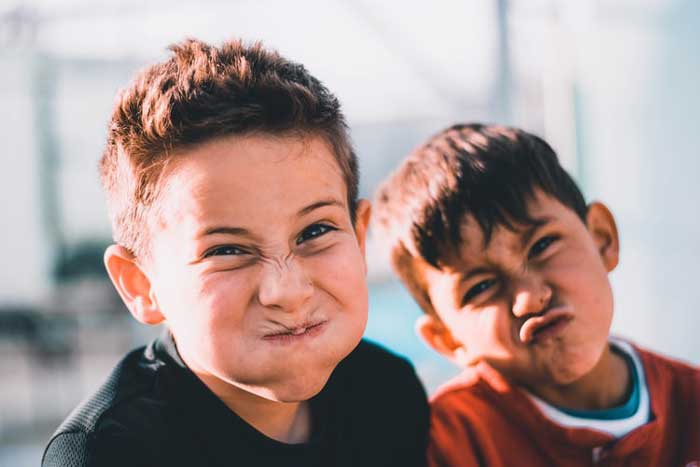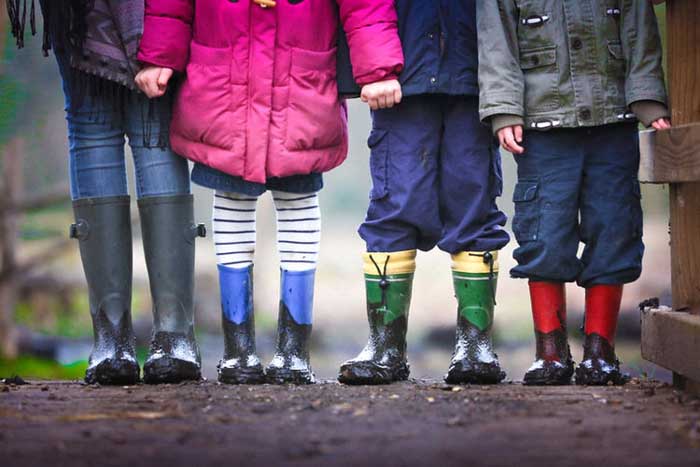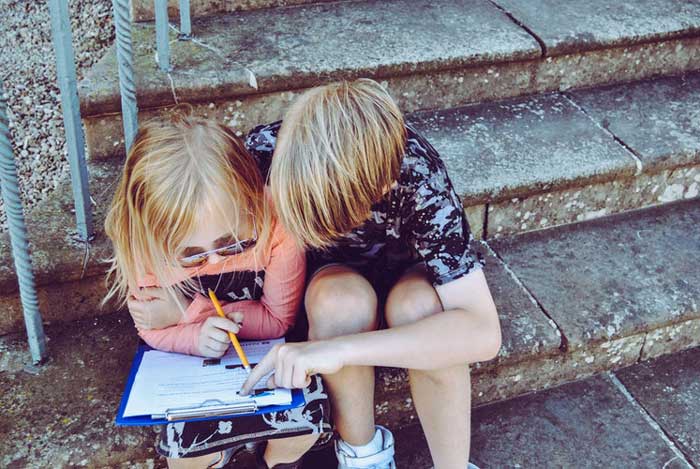How to Deal with Your Kid’s Bad Friends?
Out of the blue you realize that your kid’s friends can be very rude to their mommies, especially when they are denied something. Yesterday you heard your daughter’s friend say a word that – if the truth is to be told – shocked you. So you begin to think: what if your children will lap it up – and walk along this road? You feel you must put things right!
 Don’t ever voice your opinion
Don’t ever voice your opinion
If you choose to say to your kids that their friends are less than desirable, you may achieve the opposite effect and add to their popularity – and incidentally, to the intensity of what might have been a passing acquaintanceship. It is never a good tactics to openly brand children in your neighborhood as excellent or atrocious potential friends. You should attain your objects in a subtler way than this.
Think long-term
In the fullness of time your kids will grow out of their wish to rebel giving you the chance to wind down some. Children who are close to your little dears right now can disappear from view very soon (or remain bosom friends, for that matter). Your best bet would be to keep even temper and observe the development. There is always a chance you misunderstood the other kid.
Don’t take it very personally
Your attitude to your child’s friend(s) may be influenced by your attitude to their parents; or maybe you just don’t like the mode they bring up their kids in. Consider the reason behind your feelings – there may be a wish that your child should be a leader, while the reality is different, or that your bringing up methods are in any way threatened.
Make friends with them
It is a very efficacious strategy – unless you overplay it and come across as a sycophantic adult wheedling for acceptance. Be well-disposed and matter-of-fact. If you are dealing with younger children, involve them in kitchen activities and small household chores, engaging them in a conversation. Evince interest in whatever they want to tell you. Allow them a little more freedom and responsibility so they could feel older than they really are.
With adjustments, the same approach works with teenagers, too. If you show you accept them as grown up persons they will play along. Besides, if you “tame” them and make them accustomed to your pleasant home atmosphere, your own kid may be surprised watching their super-active friend mellow down.
Be watchful
It is probable that your unacceptance has a solid basis – the friend is unruly, recalcitrant, prone to indecency or misbehaviors, then of course you need to act. Still, your acting requires consideration. Supposing your minor gets pushed around and put down by the one they believe to be a friend – be empathic and discuss their behavior and how it can be changed to get an edge over the opponent.
Any personal interference on your part is likely to put you in the wrong: your kid may resent it and refuse to discuss the issue with you any further. Work on making them more confident and stimulate cultivating other boys and girls who are not so troublesome. If the conversation veers to bullying, sex, alcohol and substances, don’t show reluctance and unacceptance, but try to find out whether their friends have tried it and with what result. Should their own involvement be mentioned, do not mete out punishment – it’s good your child did confide, now start thinking about helping him cope.
No use being cool
Worrying and caring is what you are to do! As your child has entered into his or her teens, their attitude to danger undergoes a change: they don’t think much of being inveigled into misbehavior by those they know well (siblings, class- and playmates, cousins). If you chose to pretend you are not anxious could make the kid want to bid for your attention. You want to be the one to turn to in a critical situation – for your child’s friends as well as for them. Make then understand that you are here to help although you do not condone to certain behaviors.
You know, there’s no choosing children – their friends either.
Praise them for showing confidence
Talk to them periodically explaining that with the passing of time they will meet new people, and some of them might want to place them under their influence, and they will have to stay independent and take their own council. Some children can disagree and say you are putting their friends down; steer the conversation round to their own ability of mastering their life. Tell them that you believe in their ability to influence others rather than fall to someone’s determination. It can place them in a more advantageous position which works better than criticism.
Short tips on how to outdo bad influence:
- Avoid overreacting so that your kid doesn’t grow much more fearful and disturbed.
- The child’s misbehavior caused by outside influence should be treated as a question of a good or bad choice not affecting their inborn goodness.
- Accentuate positively the instances when the child made the right choices and was on his or her best behavior.
- Think of various acceptable ways for the child to have (or to be able to do) what they want.


